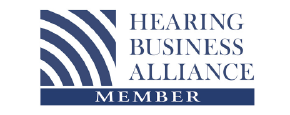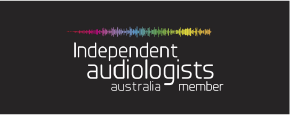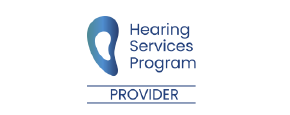Are you looking for a hearing test in Strathpine?
Are you having difficulty communicating? Our expert audiologists at Hearing Help can help improve your hearing clarity. Book your consultation today and reconnect with the sounds and people you love!
Hearing Test in Strathpine Brisbane
Are you looking for Hearing Test in Strathpine Brisbane? We are conveniently located within the Newport Physio and Health clinic at Newport Marketplace.We offer comprehensive hearing tests to assess and address hearing health concerns. Hearing Help, a reputable hearing service provider, offers personalised care and expert advice tailored to individual needs. Their team of experienced audiologists and hearing specialists utilise state-of-the-art technology to conduct accurate diagnoses and treatments. A typical hearing test takes 30-60 minutes, involving non-invasive procedures to identify hearing loss and potential causes. With a focus on genuine service and client-centered care, Hearing Help provides a supportive environment for individuals seeking to improve their hearing health. Further exploration of their services reveals a comprehensive approach to addressing hearing issues.
About Hearing Help
Established to provide high-quality hearing services, Hearing Help is a reputable company dedicated to improving the hearing health and well-being of individuals in Strathpine, Brisbane. Our team of experienced audiologists and hearing specialists are committed to delivering personalised care and expert advice to address the unique needs of each client. We understand the importance of hearing in maintaining a high quality of life and aim to provide comprehensive solutions for individuals experiencing hearing difficulties.
At Hearing Help, we utilise state-of-the-art technology and innovative testing methods to accurately diagnose and treat hearing-related conditions. Our services include comprehensive hearing assessments, hearing aid fittings, and ongoing support to ensure optimal hearing outcomes. We prioritise building strong relationships with our clients, taking the time to listen to their concerns and tailor our services to meet their specific needs. By choosing Hearing Help, individuals in Strathpine and surrounding areas can trust they are receiving exceptional care and expertise in hearing health.
Why Choose Hearing Help?
Hearing Help provides comprehensive hearing services in the surrounding areas of Newport 4020 Brisbane, focusing on genuine service, “Best Practices,” and client-centred care. They offer a range of services, including hearing tests, tinnitus assessments, ear plugs, and hearing aid fittings, leveraging their independence to provide unbiased advice and access to a wide range of products from multiple manufacturers.
Importance of hearing health and regular hearing tests
Maintaining good hearing health is crucial for overall well-being, as hearing loss can significantly impact an individual’s quality of life, social interactions, and even mental health. Undiagnosed hearing loss can lead to feelings of isolation, decreased confidence, and an increased risk of cognitive decline. Regular hearing tests are essential for early detection, diagnosis, and treatment of hearing impairments. These assessments can identify any hearing problems, allowing for timely intervention and potentially preventing further damage. By incorporating regular hearing tests into one’s healthcare routine, individuals can ensure they receive necessary treatments, such as hearing aids or other assistive devices, to maintain optimal hearing and overall health.
What is a Hearing Test?
To better understand how hearing health is assessed, it is helpful to know what a hearing test entails and what individuals can expect during the evaluation process. A hearing test is a comprehensive evaluation of an individual’s hearing ability, aimed at identifying any hearing loss, its severity, and potential causes. The test assesses various aspects of hearing, including the ability to detect different frequencies and sound levels.
Conducted by an audiologist or a hearing specialist, a hearing test typically involves a series of non-invasive procedures. The results of the test provide valuable insights into an individual’s hearing health, enabling the specialist to diagnose any hearing-related issues. The information gathered during the test also helps in developing a treatment plan tailored to the individual’s specific needs. By understanding what a hearing test entails, individuals can feel more prepared and informed about the evaluation process, ultimately leading to better hearing health outcomes.
Types of Hearing Tests
A comprehensive assessment of an individual’s auditory function typically involves a battery of tests, which can be broadly categorised into several types. These include pure-tone audiometry, bone conduction testing, and speech audiometry. Pure-tone audiometry assesses an individual’s ability to detect different frequencies, while bone conduction testing evaluates the inner ear’s ability to conduct sound through the skull. Speech audiometry, on the other hand, evaluates an individual’s ability to understand and interpret speech in various environments.

In addition to these behavioural tests, a comprehensive hearing assessment may also include physiological measures, such as tympanometry and acoustic reflex testing, which assess middle ear function. Electrocochleography (ECochG) and Auditory Brainstem Response (ABR) testing may also be used to assess the neural integrity of the auditory system. Each of these tests provides unique information about different aspects of auditory function, allowing audiologists to obtain a comprehensive understanding of an individual’s hearing status. By combining the results of multiple tests, audiologists can accurately diagnose and manage hearing loss, as well as develop effective treatment and rehabilitation plans. This comprehensive approach to hearing assessment ensures that individuals receive the most accurate and effective care for their specific needs.
Preparing for Your Hearing Test
As you prepare for your hearing test, it’s essential to understand what to expect from the process to ensure a smooth and accurate assessment. From arrival to completion, our hearing tests are designed to be comprehensive and efficient, typically taking around 30-60 minutes. To help you prepare, we’ll provide you with valuable tips and information on what to expect during your appointment, ensuring you feel comfortable and informed throughout the process.
What to Expect
When you arrive for your hearing test, our experienced audiologists will begin by asking you a series of questions to understand your medical history, hearing concerns, and lifestyle. This comprehensive inquiry helps identify potential causes of hearing loss and ensures that we consider all relevant factors when assessing your hearing. It’s essential to provide accurate and detailed information to enable our audiologists to tailor the test to your specific needs.
During this initial discussion, we may ask questions about your occupation, hobbies, and social activities to understand how hearing affects your daily life. We will also inquire about any previous ear problems, such as earwax buildup, infections, or surgeries, as well as any relevant medical conditions, such as diabetes or ear-related genetic disorders. Your candid responses will facilitate a more accurate assessment of your hearing and enable us to provide personalised recommendations for improvement.
Description of the process from arrival to completion
Upon arrival at our clinic, your comprehensive hearing test will begin with a detailed preparation process designed to ensure the accuracy and reliability of your test results. Our friendly and experienced staff will greet you and ask you to complete a brief questionnaire to gather information about your medical history, hearing concerns, and any previous hearing tests you may have undergone. This information will help our audiologists tailor the test to your specific needs and ensure that we address all your concerns.
Next, our audiologist will review the questionnaire with you and discuss the test procedures, answering any questions you may have. We will then examine your ears using an otoscope to check for any blockages, such as earwax, that may affect the test results. Our state-of-the-art equipment is calibrated regularly to ensure accuracy and reliability. Our audiologist will guide you through every step of the process, ensuring that you are comfortable and informed throughout the test. By following this detailed preparation process, we can ensure that your hearing test results are accurate and reliable, providing a solid foundation for any subsequent treatment or recommendations.
Duration of a typical hearing test
Having thoroughly prepared for the test through our comprehensive preparation process, you can expect a typical hearing test at our clinic to last approximately 30-60 minutes, depending on the complexity of the assessment and your individual needs. The duration of the test may vary if our audiologist requires more time to investigate specific aspects of your hearing or if additional assessments are needed.
During the test, our experienced audiologist will work efficiently to ensure that all necessary evaluations are completed within the allotted timeframe. This may include Pure Tone Audiometry, Speech Discrimination, and Middle Ear Function tests, among others. Our audiologist will also take the time to discuss the results with you, explain any findings, and provide recommendations for further action if necessary. Our goal is to ensure that you receive accurate and comprehensive results in a timely manner, allowing you to take the next steps in addressing any hearing concerns.
Tips for preparing for a hearing test
To ensure an accurate and effective hearing assessment, proper preparation is essential, and there are several steps you can take prior to your appointment at our clinic. Before your hearing test, it is crucial to provide your audiologist with relevant information about your medical history, including past ear surgeries, ear infections, or any other conditions that may impact your hearing.
Avoid exposure to loud noises at least 24 hours before the test, as this can affect the results. Additionally, remove any earwax or other blockages from your ears to ensure accurate readings. It is also recommended that you avoid taking medications that may affect your hearing, such as certain antibiotics or aspirin, for at least 24 hours prior to the test.
On the day of the test, arrive 10-15 minutes early to complete any necessary paperwork and get settled. Bring a friend or family member for support and to provide additional information, if needed. By following these simple steps, you can help ensure a thorough and accurate assessment of your hearing.
The Hearing Test Procedure
The hearing test procedure at our clinic begins with an initial consultation, where you will meet with one of our experienced audiologists to discuss your symptoms and medical history. This crucial step allows us to understand your unique needs and tailor the testing process accordingly. Through a combination of state-of-the-art equipment and expert evaluation, we will conduct a series of tests to assess your hearing and provide an accurate diagnosis.
Initial Consultation
During an initial consultation, a comprehensive hearing test is conducted to assess an individual’s hearing thresholds and identify any potential hearing-related problems. This test is typically performed by an audiologist in a soundproof room to minimise external distractions and ensure accurate results. The hearing test procedure involves a series of assessments, including pure-tone audiometry, speech audiometry, and middle ear function tests.
Pure-tone audiometry involves presenting sounds of varying frequencies and intensities to the individual through headphones to determine their hearing thresholds. Speech audiometry assesses the individual’s ability to understand speech in different environments. Middle ear function tests, such as tympanometry and acoustic reflex testing, evaluate the movement and function of the eardrum and middle ear bones.
The results of these tests provide a detailed picture of an individual’s hearing abilities and help identify any hearing-related problems, such as hearing loss, earwax buildup, or middle ear dysfunction. By conducting a comprehensive hearing test during the initial consultation, the audiologist can develop an effective treatment plan and provide personalised recommendations to address the individual’s specific hearing needs. This ensures that the individual receives the best possible care and support for their hearing health.
Discussion with an audiologist about symptoms and medical history
Prior to conducting the hearing test, an in-depth discussion with the audiologist about symptoms and medical history is essential to gather relevant information and provide context for the individual’s hearing assessment. This discussion enables the audiologist to identify potential causes of hearing difficulties, such as exposure to loud noises, ear infections, or certain medications. It also allows for the exploration of any concerns or questions the individual may have regarding their hearing health.
A thorough review of the individual’s medical history is crucial, as certain conditions, such as diabetes or Meniere’s disease, can have a significant impact on hearing. The audiologist will also inquire about any previous hearing tests or assessments, as well as any previous treatments or interventions. This comprehensive discussion ensures that the audiologist has a complete understanding of the individual’s hearing needs, enabling them to tailor the hearing test procedure to specific requirements. By gathering this essential information, the audiologist can ensure accurate and effective assessment of the individual’s hearing abilities.
Conducting the Tests
Following a comprehensive discussion about symptoms and medical history, a series of hearing tests are conducted to assess an individual’s hearing abilities and identify any potential hearing difficulties. These tests are designed to evaluate various aspects of hearing, including the ability to detect different frequencies, sound localisation, and speech recognition.
The tests typically begin with an otoscopy examination, where the audiologist visually inspects the ear canal and eardrum for any signs of obstruction or damage. Next, tympanometry may be conducted to assess middle ear function and mobility of the eardrum. Acoustic reflex testing is also performed to evaluate the stapedius muscle’s response to loud sounds.
Pure tone audiometry and speech audiometry tests are then conducted in a soundproof room to assess the individual’s ability to detect and recognise sounds and speech at varying levels. Bone conduction testing may also be performed to evaluate inner ear function. The results of these tests are carefully analysed to identify any hearing difficulties or underlying conditions, and to determine the most effective course of treatment. The audiologist will then discuss the results with the individual and provide recommendations for further management.
Post-Test Consultation
Following the hearing test procedure, the audiologist will thoroughly discuss the results with the patient, outlining treatment options and recommendations tailored to their specific hearing needs. This consultation provides an opportunity for patients to ask questions, address concerns, and gain a clear understanding of their hearing health. Additionally, the audiologist will work with the patient to schedule follow-up appointments, as necessary, to monitor their progress and adjust treatment plans accordingly.
Treatment Options and Recommendations
Based on the results of the hearing test, several treatment options and recommendations are available to address the specific hearing needs and preferences of each individual. These may include hearing aids, which can significantly improve speech recognition and overall quality of life. The type of hearing aid recommended will depend on the individual’s hearing loss, ear size and shape, and personal preferences.
For individuals with conductive or mixed hearing loss, surgical options may be available to address problems with the outer or middle ear. Earwax removal may be recommended if excess earwax is impacting hearing ability. Audiological therapy is another treatment option aimed at improving auditory skills such as speech processing and perception.
Regardless of the chosen treatment plan, individual needs and comfort levels will guide the entire process to reach the ultimate goal – of achieving effective hearing recovery in a welcoming, highly-personalised manner tailored only to an individual case as presented from their assessed comprehensive hearing and auditory findings as well.
Scheduling Follow-Up Appointments
As a crucial step in ensuring optimal hearing outcomes, scheduling a follow-up appointment after the post-test consultation enables the audiologist to monitor progress, address any concerns, and make necessary adjustments to the treatment plan. During this appointment, the audiologist will assess the effectiveness of the recommended treatment options and make any necessary adjustments to ensure the best possible outcomes.
The follow-up appointment also provides an opportunity for the individual to ask questions, express concerns, and discuss any challenges they may be experiencing with their hearing aids or other treatment options. The audiologist will also use this appointment to reinforce proper hearing aid use and maintenance, as well as provide additional counseling on communication strategies to optimise communication in various environments.
Book an appointment
Ready to hear the world more clearly? Contact Hearing Help today to schedule your personalised hearing consultation. Call us or visit our website to find your path to better hearing. We’re here to help you connect with every sound life has to offer.
Address: Newport Marketplace Shopping Centre
Tenancy M01, 10 Lakeview Promenade, Newport QLD 4020
(located inside Newport Physio rooms)
Phone: 07 3214 3641
Email: hello@hearinghelpredcliffe.com.au










